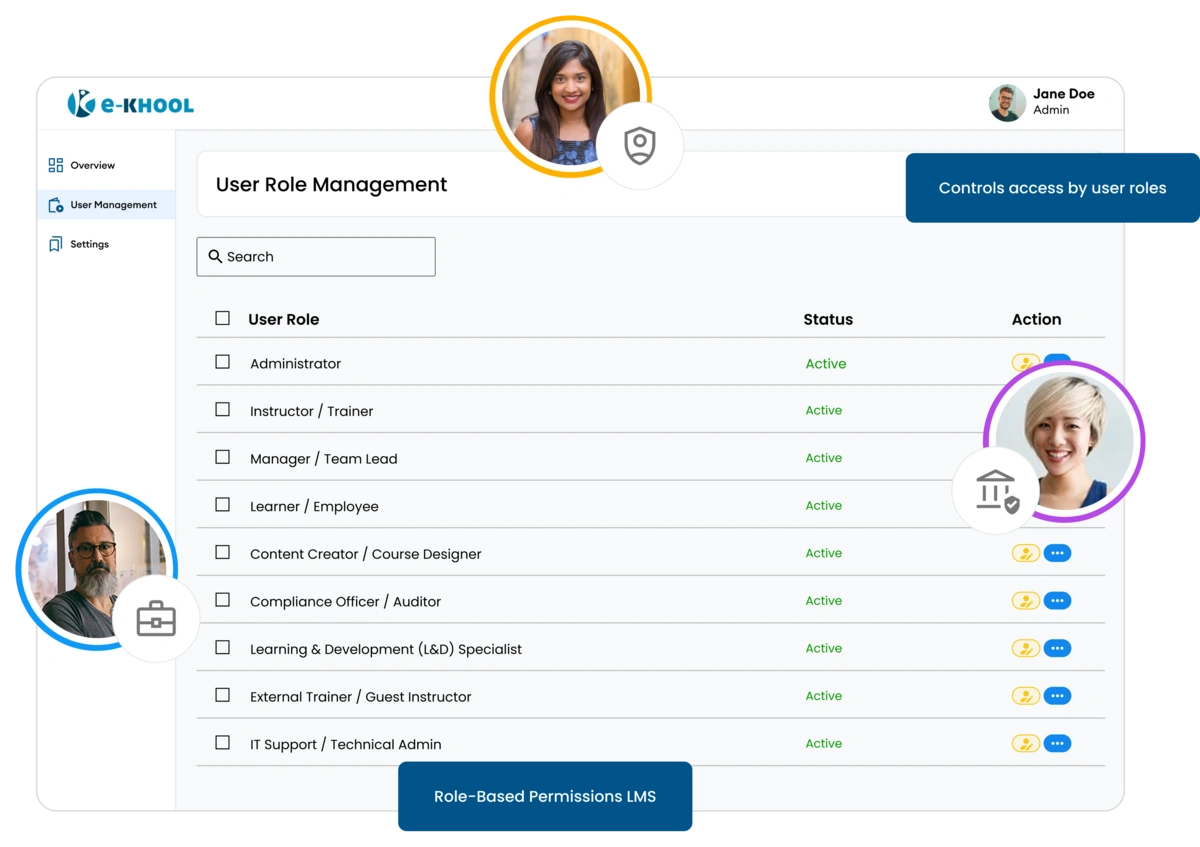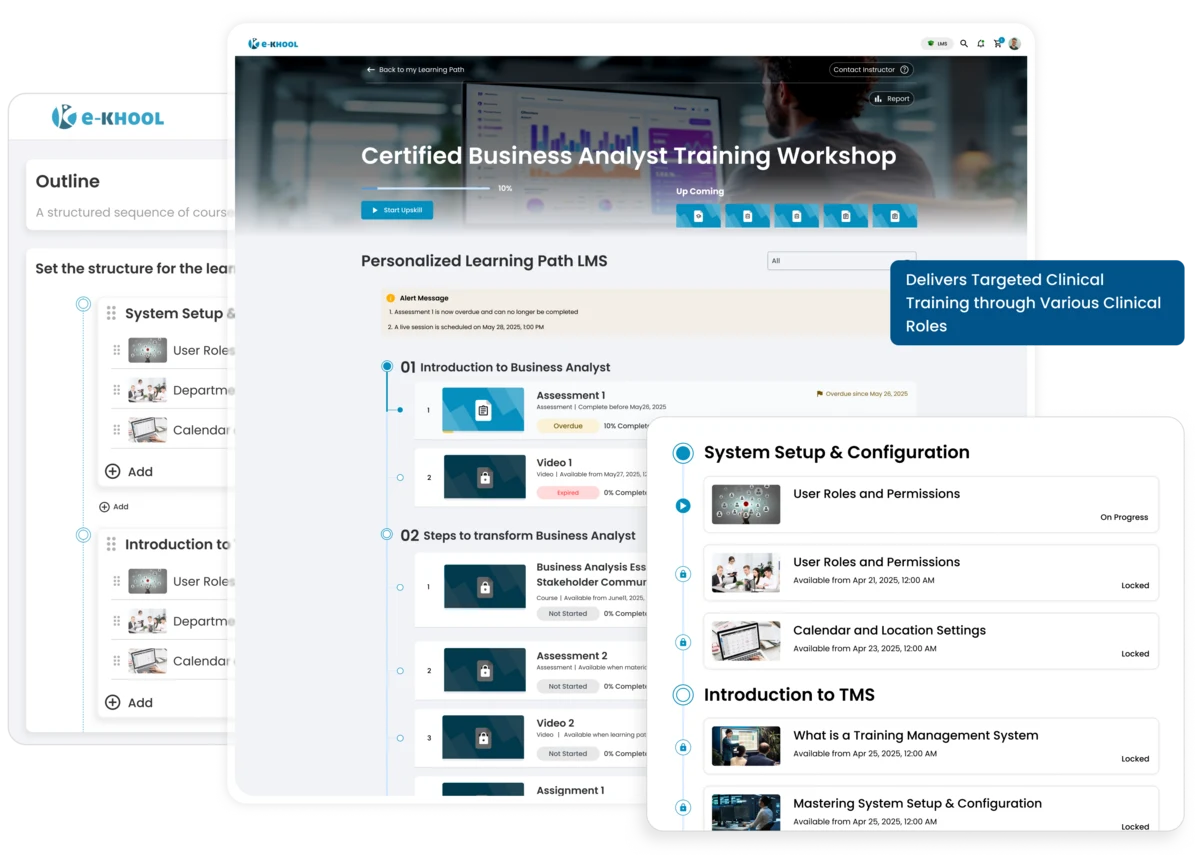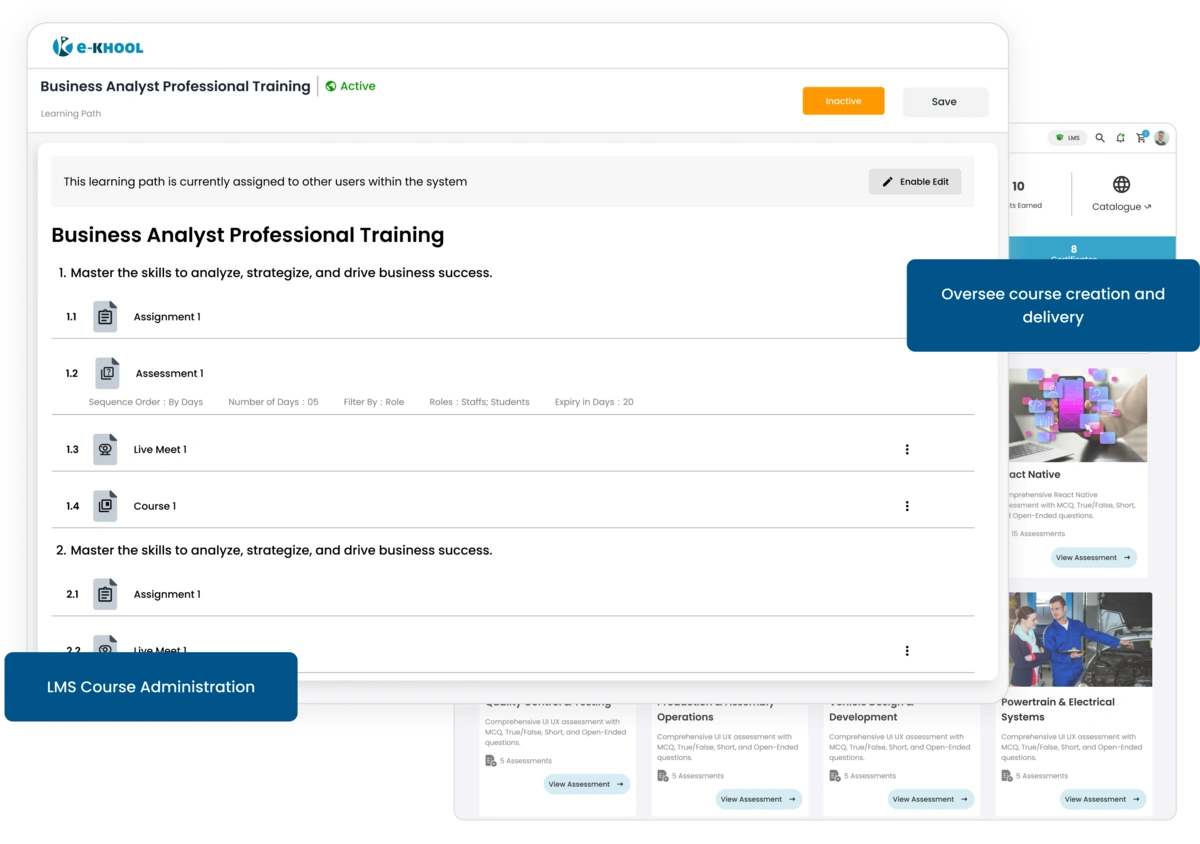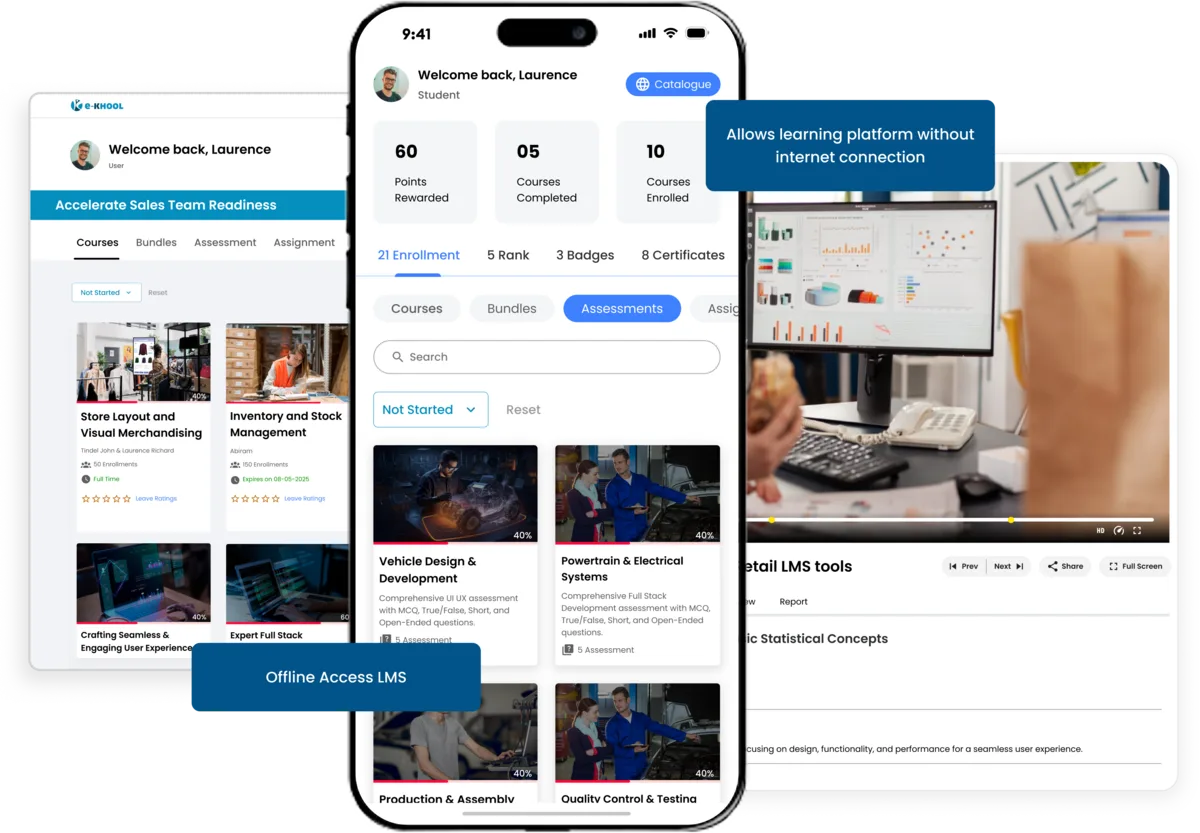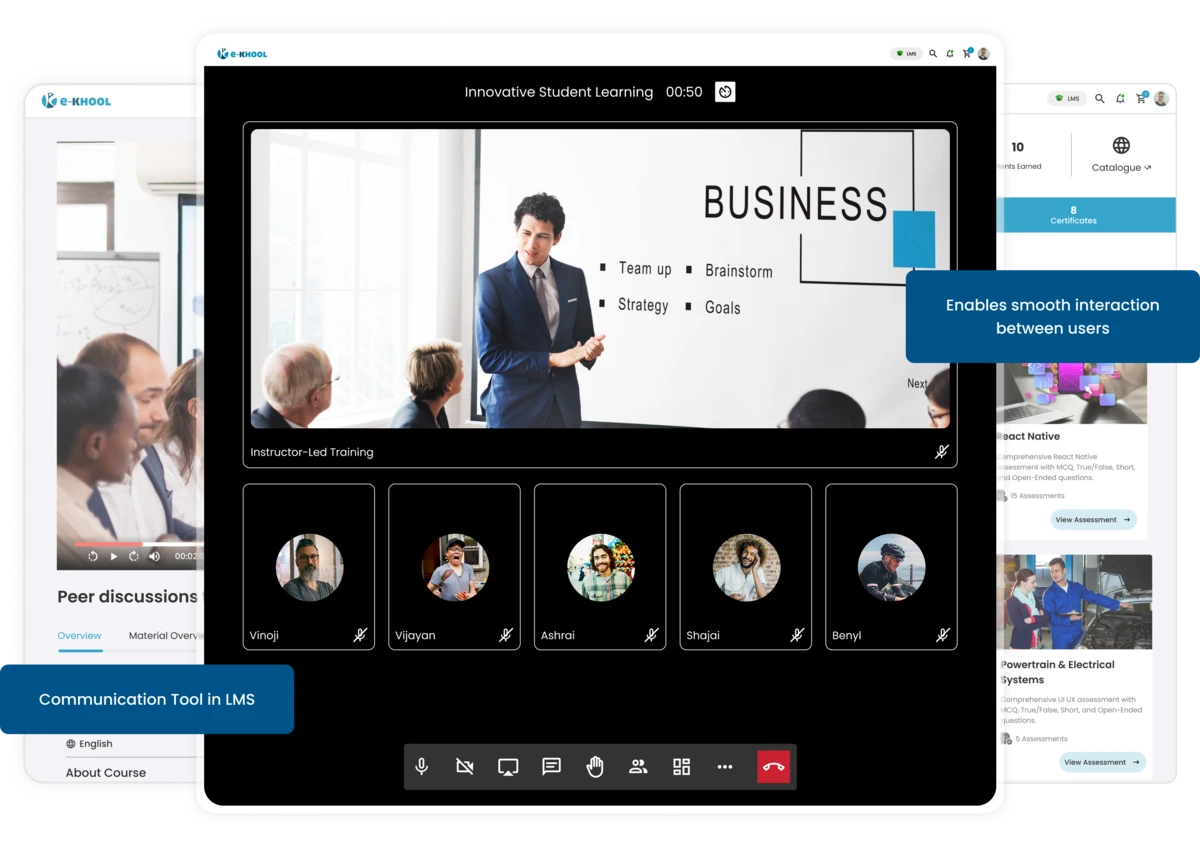Module-Wise Access Management
Define which modules each user role can access, enabling defined control over LMS functionality for learners, trainers, or custom roles.
Course Management Access
Allow specific actions like create, edit, delete, or view courses depending on assigned role permissions.
Bundle & Enrollment Access
Control who can manage course bundles or enroll learners, ensuring only authorized roles can modify personalized learning paths.
Content & Gamification Access
Assign permissions to edit content, manage gamification settings, and maintain course categories securely.
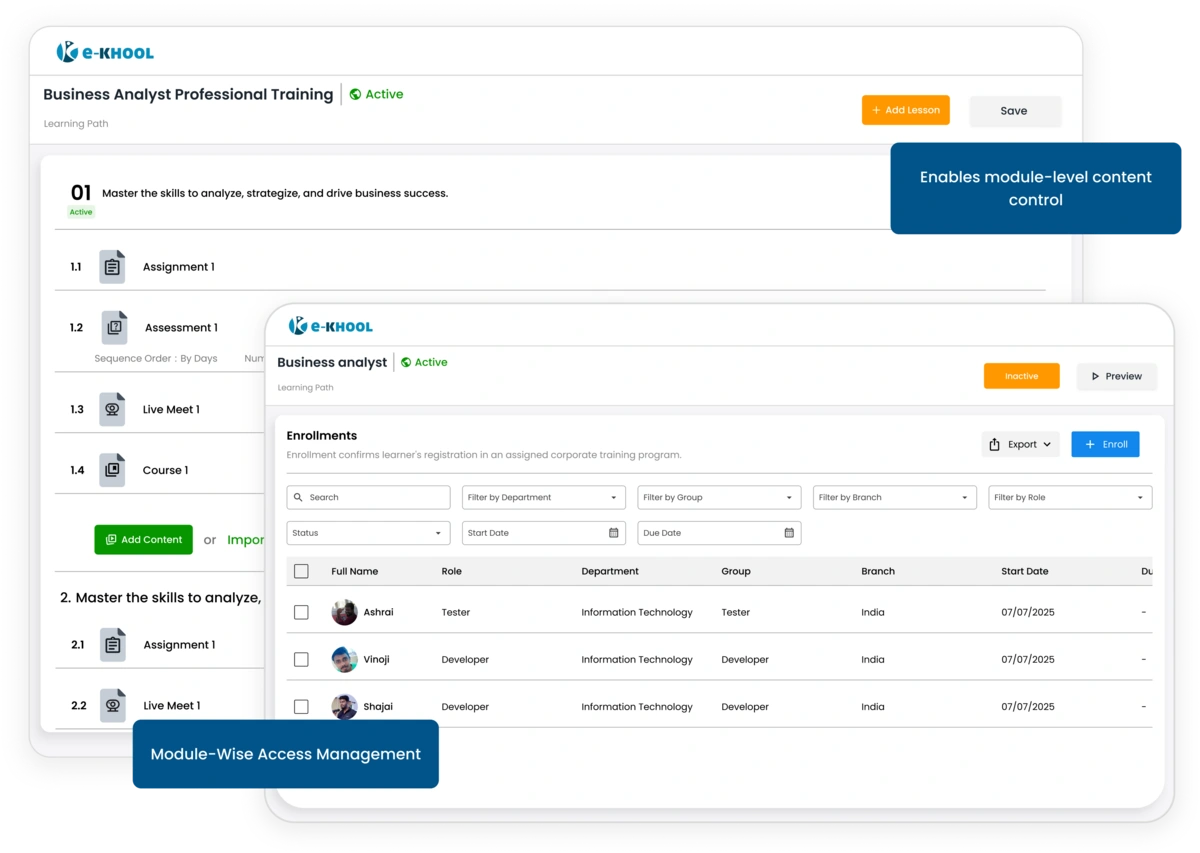
Set User Roles for Defined Functions
Predefined roles simplify access control, while custom roles allow unique permission sets for specialized operational needs.
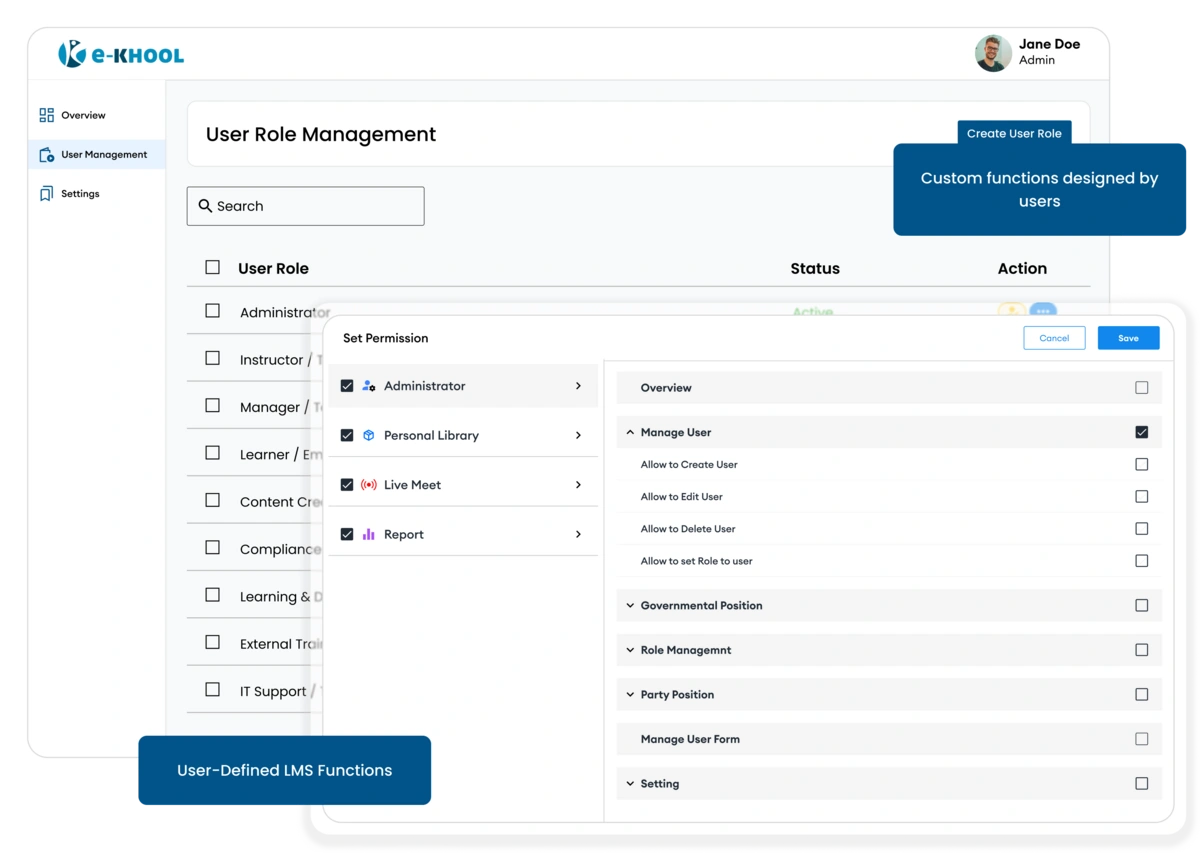
Learners & Trainers Roles
Default roles with limited permissions, ensuring learners focus on learning and trainers manage course delivery efficiently.
Role Creation
Admins can define custom roles, allowing permissions for specialized positions like coordinators, moderators, or content reviewers.
Role Assignment Flexibility
Assign multiple roles to users for overlapping responsibilities, ensuring flexibility in organizational access control.
Advanced Access Features
Fine-tune what each role can do within modules, including editing, updating, deleting, or managing specific content or settings.
Administration Permissions
Control login settings, localization, user management, branding, and notification management with precise role-based access.
Site Builder Permissions
Assign permissions to manage pages, posts, categories, forms, banners, and testimonials, maintaining editorial control securely.
Audit & Integration Permissions
Track changes with audit logs and manage integrations safely by restricting access to authorized roles only.
Secure & Streamlined Management
Ensure LMS security and operational efficiency by controlling access rights, reducing errors, and safeguarding sensitive information across all modules.
Real-Time Permission Updates
Admins can update permissions instantly, ensuring immediate effect on user access without disrupting learning processes.
Simplified Oversight Features
With role-based access, monitoring activities, assignments, and module usage becomes straightforward for administrators.
Scalability Features
Supports growing teams by easily adding new roles and configuring permissions across multiple departments and modules.
